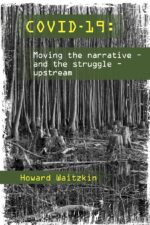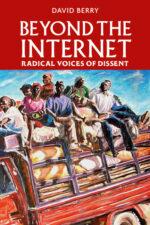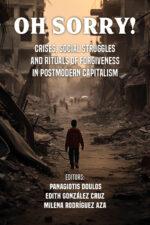-
-
Afro-Asian Poetry that Changed the World

“It is unclear when ‘Lotus’, a literary magazine of progressive Afro-Asian writers largely funded by the USSR, published its last issue after a successful run spanning two decades (1968-1991); but it was certainly a voice of the Palestinian people.
Professor Tariq Mehmood Ali teaches English at the American University of Beirut and is an award-winning novelist and a documentary filmmaker. A few years ago, he launched a project to restore the magazine’s legacy. The project involves curating, saving, preserving, and digitizing old issues, offering historical depth to the Palestine movement and potentially making the magazine accessible to a new generation of readers from Palestine and the rest of the Global South.
“‘Lotus’ resolutely opposed Zionism, seeing it as a racist tool of imperialism,” says Prof Ali, who has pored over innumerable issues of the magazine. He suggests that Palestinians would not have had such a raw deal if the publication was still in circulation.
‘Lotus’ championed the cause of the Palestinian Liberation Operation (PLO) and even passed a resolution on Palestine at its third Afro-Asian conference held in Beirut (1970-71). These and other details find mention in Prof Ali’s book ‘Afro-Asian Poetry that Changed the World’, scheduled for a spring 2024 release.
‘Lotus’ was a trilingual quarterly magazine published in Arabic, English and French – and then translated into numerous languages of formerly colonized countries.
“The writers of ‘Lotus’ as well as the journal itself had a huge cultural impact at the time, affecting tens of millions of people. This was the first time writers of Africa and Asia were able to talk to each other, across their vast continents, outside the prism of their colonial and imperial usurpers,” says Prof Ali, who is currently busy digitizing and archiving the magazine. …
Some of the prominent writers who contributed to ‘Lotus’ included Youssef El Sebai, Abdel Aziz Sadek, Edward El Kharrat (Egypt), Mouloud Mammeri (Algeria), Mulk Raj Anand (India), Hiroshi Noma, (Japan), Dr Soheil Idriss (Lebanon), Sononym Udval (Mongolia), Faiz Ahmed Faiz (Pakistan), Mario De Andrade (Portuguese Colonies), Mohamed Soleinian (Sudan), Alex La Guma (South Africa), Anatoly Sofronov (USSR), Adonis (Lebanon) and Mahmoud Darwish (Palestine).
The magazine instituted the Lotus Prize and among its recipients were Pakistan’s Faiz Ahmed Faiz and India’s Harivansh Rai Bachchan (whose son Amitabh is a well-known actor). Translation bureaus were launched in many countries of the two continents – so that people could read each other’s works.
By Lamat Hasan, an independent journalist based in Delhi.
-
Beyond the Internet: Radical Voices of Dissent
The title of our book is open to multiple interpretations, and purposely so, with the deliberate insertion of ‘beyond.’
For example, on a philosophical level, the word beyond means to examine the metaphysical character of the relationship between the Internet and dissenting voices. This isn’t abstract, because metaphysics is based on searching for the nature of reality, identity, of understanding causality, theorizing time and space.
So, the ‘nature of reality’ is to examine the relationship between the Internet and Dissent, which then allows us to understand ‘causality’. ‘Identity’ speaks for itself, and ‘time and space’, for example, is central to many indigenous peoples’ thinking in Latin America with regards to ancestral issues, colonialism, and relations with nature.
It also includes issues concerning potentialities (dissent and activism), which connects to our central question: What is the relationship between the Internet and dissent?
On a concrete level, we know that the relationship between technology and resistance differs according to the context of each struggle. Many resistance groups and individual dissenting voices embrace the Internet, whilst others do not, and this is what we are seeking to explore and understand.
The perfect dream of technolibertarians or cyberlibertarians that the Internet would enhance freedoms, free from state authority, is over, if ever it had begun.
In many cases, the Internet has become a form of State surveillance over the activities and thoughts of political activists forcing groups to move ‘offline’, or to use old fashioned terminology, ‘take to the streets.’
But conversely, many dissenting voices embrace the Internet and social media, and it’s our purpose to explore the uses the Internet may or may not have in specific contexts.
Thus, our aim is to listen to the voices of those at the sharp end of resistance, and to inquire what role, the Internet plays, in their respective forms of resistance.
CONTENTS
When Radicalism Becomes Dissent (David Berry)
The Internet & Dissent (David Berry)
The Cheran Insurrection: Peoples’ Grassroots Democracy (Victor Alfonzo Zerthuche Cobos)
Kurdish Resistance & Homeland (Name Pending)
New Weapons of Resistance in the Amazon (Sue Branford & Mauricio Torres)
Burmese Guerilla Warfare, Technology & Identity (Maran Ja Yi Ma)
Struggles for Nationhood: Comparing the Mapuche of Chile & the Welsh (Franco Ramos Guiterez & David Berry)
In Conversation with Caoimhghin O’ Croidheain: Radical Irish Artist (Iglika Gerganova)
An Interview with Iranian Artist Roshi Rouzbehani (David Berry)
Defenders of the Land: The Colombian Minga (Valentina Murillo)
Grassroots Journalism in India: the story behind Khabar Lahariya (Rosa Sylvia Parks)When Radicalism Becomes Dissent (David Berry)
The Internet & Dissent (David Berry)
The Cheran Insurrection: Peoples’ Grassroots Democracy (Victor Alfonzo Zerthuche Cobos)
Kurdish Resistance & Homeland (Name Pending)
New Weapons of Resistance in the Amazon (Sue Branford & Mauricio Torres)
Burmese Guerilla Warfare, Technology & Identity (Maran Ja Yi Ma)
Struggles for Nationhood: Comparing the Mapuche of Chile & the Welsh (Franco Ramos Guiterez & David Berry)
In Conversation with Caoimhghin O’ Croidheain: Radical Irish Artist (Iglika Gerganova)
An Interview with Iranian Artist Roshi Rouzbehani (David Berry)
Defenders of the Land: The Colombian Minga (Valentina Murillo)
Grassroots Journalism in India: the story behind Khabar Lahariya (Rosa Sylvia Parks) -
Episodes from a colonial present
Postcolonial critique deconstructs global inequality in its epistemic and material dimensions. This collective comic project illuminates everyday life’s coloniality as well as the decolonising potential of everyday struggles in the spaces, discourses and practices of so-called ‘global development’. -
Oh, Sorry! Rituals of Forgiveness, Crises and Social Struggles in Postmodern Capitalism
As the world grapples with the legacy of crimes of enslavement, colonialism, genocide and mass killings, imprisonment and murder of children, attempts at eliminating cultures and history of Indigenous peoples, looting and other crimes against humanity, the performance of public atonement has become increasingly prevalent. Apologies from state actors and institutions are issued in solemn ceremonies, often acknowledging the collective guilt for historical atrocities. Despite the solemnity of these events, there is a growing scepticism surrounding the sincerity of these apologies, particularly when they are not accompanied by tangible reparations, healing, reconciliation or systemic change. This scepticism is rooted in a perception that these acts of contrition are sometimes less about making amends to the aggrieved and more about assuaging the guilt of the aggressors and maintaining the status quo, providing the illusion of progress without the substance.
In this compelling work, Oh, Sorry! Rituals of Forgiveness, Crises and Social Struggles in Postmodern Capitalism, the authors unveil the complex interplay between public apologies, social justice and popular mobilisations. They argue that these acts of contrition while heralding unresolved histories into the public eye, serve as battlegrounds where the definitions of truth and the contours of historical memory are fiercely contested. This collection of essays illuminates the paradoxical nature of these rituals, positing that rather than catalysing transformative change, they simply cement the prevailing societal structures, emboldening states to persist in their destructive paths under the guise of remorse. Such apologies often precede an expected forgetfulness, rendering truth a malleable tool to compartmentalise the past as a distant occurrence, not an ongoing narrative. The discourse laid out in these essays emphasizes the tension inherent in the act of forgiveness—an act that, within the established framework, demands that the state remain unchallenged, wielding the power to decree what should or should not be forgiven.
The editors of this book did not intend this to be a comprehensive treatise on the rituals of forgiveness: the chapters are devoted primarily to the experiences of Latin America, particularly of Mexico, Guatemala, Chile, and Brazil. But there is also a chapter on the struggles for Palestine — so relevant in the face of the current genocidal invasion by the Zionist State of Israel into Gaza, the world’s largest and most densely populated concentration camp. Nithya Nagarajan explores the ongoing plight of Palestinians since the Nakba in 1948, and event that, for over 75 years, has not only subjected Palestinians to severe hardships but has also seen their resistance and struggle for liberation being ideologically effaced by Israeli and mainstream media efforts, portraying Palestinians as victims rather than agents of revolution.
Forward by Firoze Manji
Introduction
One
Rituals of Forgiveness: The Performance of State Violence in the Context of Crisis by Panagiotis Doulos & Edith González Cruz
Two
From Forgiveness to Permission: The State and “the Indigenous” in the Face of Planetary Collapse by Ines Durán Matute.
Three
End(s) of Forgiveness by Minas Vlachos
Four
The Fierce Dispute for Memory, Truth and Justice in Guatemala by Carlos Figueroa Ibarra.
Five
Never Again? A Critique of Narratives of Forgiveness and Reconciliation in Post-dictatorial Chile by Roberto Longoni Martínez.
Six
Rituals of Forgiveness as a Political Strategy of the Capitalist State: The Brazilian Case of “O Amor Venceu” in Lula’s Victory in 2022 by Leonardo Carnut, Lúcia Dias da Silva Guerra & Áquilas Mendes.
Seven
The No-bodies: Between Forgiveness and Overflow. Notes Against Forgiveness as a Dispositive of Control in Times of Explicit Antagonism by Milena Rodríguez Aza.
Eight
The March of Return: Struggle for Palestinian Liberation in the Unfinished Nakba by Nithya Nagarajan.
-
Transcending our Colonial Place: Africa and the dialectics of emancipation
Fanon exhorted us (his posthumous comrades) to abandon Eurocentric thinking and to reconnect with dialectical thought in order as he puts it to “work out new concepts” and he insisted that “if we want humanity to advance a step farther […] then we must invent and we must make discoveries”. I propose to take Fanon at his word and to return to the dialectic as subjective thought rather than as motion of history; as a specific political subjectivity rather than as an objective development. Dialectical thought should be considered as the core feature of any politics of emancipation, a politics that is founded on what is common to humanity, an egalitarian alternative to the existing neocolonial racist capitalist organisation of society.
This book seeks to outline and assess the thinking of emancipatory politics in Africa as it changed in different historical periods. It also contrasts such politics to state political subjectivities which, by their very nature, reproduce given social placements or stated differently the allocation of people to hierarchical locations in society. Emancipatory politics always affirms a rejection of the place allocated to the oppressed and therefore contradicts and transcends the regular state subjectivities embodied in culture which ultimately attempt to justify such placement. Emancipatory politics is exceptional and therefore rare, and it is dialectical because it combines in a contradictory manner the culture of placement from which it emanates with the idea of universal freedom.
Dialectics is not the affirmation of historical necessity; it is a subjective political possibility opposed to (neo)colonial capitalism which has relegated the majority of our population to conditions of perennial impoverishment, oppression and gradual alienation from any Idea of being Human. This work illustrates the fact that dialectical thought has existed in Africa over millennia, with its earliest manifestation being in Ancient Egypt. The text also draws on the universalist content of African proverbs to show the possible dialectical content of African modes of thought, illustrating the emancipatory potential already in existence in some African cultures.
The contemporary attempts at achieving freedom on the African continent – the liberation struggles of the twentieth century – failed fundamentally because they rapidly abandoned any idea of universal humanity and held that emancipation was to be achieved through the medium of the state. It was the desire of the oligarchy that inherited independence to be accepted and integrated into the global capitalist economy for the purposes of state-led ‘development’. The effect, after a short nationalist interlude, was not an inclusive form of ‘nation-building’ but rather the building of a neocolonial state by a Western-oriented oligarchy unable or unwilling to meet the basic needs of its own people. To succeed in this endeavour, the newly independent state retained many oppressive features of its colonial predecessor remoulding them to suit its needs. The book shows how in an overwhelmingly neocolonial context, it is of little consequence to the oppressed masses in Africa whether their political system is formally labelled as ‘democratic’ or not. In fact, given the endemic corruption among the oligarchies in power, military dictatorships can garner mass popular support for shorter or longer periods if they are seen to resist (however mildly) neocolonial domination. The recent examples (early 2020s) of proto-nationalist military coups in Francophone West Africa (Guinea, Mali, Burkina Faso and Niger) are cases in point.
This book develops theoretical arguments that redirect intellectual thought away from Euro-American liberal conceptions as well as from neo-nativist fashions and vulgar Marxisms, so as to reassert the importance of latent ‘African potentials’ that are frequently embodied in collective popular statements for rethinking, dialectically, a true politics of emancipation on the African continent.
1) the Ancient World: Ancient Egypt (The Tale of the Eloquent Peasant – 4000 BCE) and Plato (as read by Alain Badiou);
2) Pre-colonial Africa and resistance to slavery: the Donsolu Kalikan (in the Manden/Mali, 1222), the Antonian Movement (in Kongo, 1684-1706) and its continuation in the Lemba Movement, and the Haitian Revolution (undertaken by slaves from Africa),
3) The National Liberation Struggles of the 1960s as thought by Fanon and Cabral, and
4) The mass popular struggles in South Africa during the 1980s.




